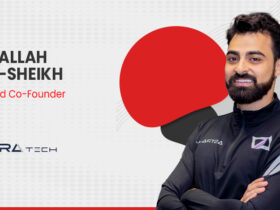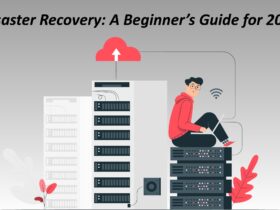Hi Joseph, could you tell us about your journey in Tech? 
My role at ShowHeroes is the Country Manager of the US. I am responsible for all revenue and operations within the region. Prior to ShowHeroes, I held various executive roles across the ad tech landscape, spanning from my start in the industry on the direct response marketing side and evolving through data, mobile rich media, CTV and various ad serving and programmatic technologies. My interest has always been in the ever-changing marketing landscape and how technologies can help enterprise businesses evolve.
How has the Covid-19 pandemic reshaped your view of the business environment that your business operates in?
Managing through covid-19 was a trial by fire. With no playbook on how to manage through a global pandemic, it was an event that strengthened viewpoints that I had harbored before the pandemic began. The Adtech/MarTech ecosystem has relied on a mantra of “you must evolve to survive”. Finding efficiencies is core to staying on the bleeding edge of what technology can enable. With these pillars, Covid solidified the idea that the construct of a physical office space does not provide efficiencies, rather, an office creates inefficiencies through commuting times to meetings or office chatter that took away from productive work. Through the pandemic, the realization has emerged that, with the right mindset, a strong internet connection and the right computer & software, one can work from anywhere and be more productive. It also challenged my belief that office equals culture. I now know that to be a myth, as culture is derived from the collection of employees and their working dynamic towards a shared goal. This is best fostered not by an office, but by in person collaboration moments, spaced far enough apart to keep the team dynamic strong… which fosters the best productivity outputs.
What sets ShowHeroes apart from the competition?
ShowHeroes sits in a unique position with the shifting focus towards valuable content and the context that supports a video ad experience. The ownership of our content studio and global agency salesforce enables us to aid our advertising partners in achieving 100% brand suitability against our premium instream video inventory, while providing publishers with rich video content that they otherwise wouldn’t have the resources to produce. The competition is overly reliant on only being an intermediary, bringing demand or optimizing demand spend on the open market. Our position enables us to provide value to the entire chain: user, publisher and advertiser.
What are your thoughts on the growing importance of contextual and semantic based targeting, as the post-third party cookie ecosystem takes shape?
The post third-party cookie world is already here. Some media owners may still try to cling to the last set of dying third party cookies but, at this stage, you should have a strategy for your first party data where you have consent, and be deploying contextual/semantic technologies for when you do not have consent. These are the only pathways moving forward in the consent economy. With those constructs embedded in your strategy, you can then overlay that to your most important one – your content strategy. If you do not have your content strategy in place, then you will miss the opportunity to draw deeper relationships with your users. If they like your content, they will keep coming back. This will afford you opportunities to gain their trust and thus their consent, forming your first party data sets. It will also enable you to foster a deeper data set to feed your contextual and semantic data. This will rise in importance as a publisher will always have a subset of users that will not give their consent (20%+). For most publishers, this is too large an audience to just ignore. The good news is, advertisers are seeing value in the relevancy of the right time, the right place and the right contextual/semantic placement for their products.
As a Business Leader, what is the one piece of advice you would give to those who aspire to the C-suite?
Have empathy. In doing so, it will enable you to understand the needs across the company, but also the needs of your customers. Understanding those needs will help in assisting others internally with growing to their full potential and developing their sense of purpose. Externally, customers will see you trying to help them solve their problems and not be just a revenue stream.
How do you see CTV advertising evolving?
CTV’s evolution will continue on a trend where Upfronts and new Fronts merge or their constructs become no longer necessary. IP delivery and the digitization trend of TV are already opening up pathways for efficiently buying audiences across devices. This ‘audience everywhere’ approach, coupled with the ability to execute programmatically and receive near real-time stats will enable the ecosystem to buy the shows and audiences they want but with a media strategy and marketing message that takes advantage of the screen the user is consuming content on.
Also Read: Gupshup acquires OneDirect, the Leading Omnichannel Customer Service Platform for Global Businesses
How can publishers deal with the increasing dominance of the Walled Gardens?
Walled gardens exist due to the imbalance of power over data, which publishers willingly gave away to ensure 3rd party cookie match rates remained high enough to merit strong demand dollars. With the onset of consumer privacy protection laws across the globe, publishers are now at a crossroads where they can empower and enrich themselves. In the consent economy, publishers are now in the vital position of garnering consent from a user. If they plan their content strategies wisely, and provide value to the end user, this should build a trusted relationship which should garner consent, allowing the collection of 1st party data. This data must now be controlled and owned by the publisher, if they wish to avoid making the same mistakes of the past. Publishers need to question their partnerships and SaaS vendors who have had no problem playing middle men to their data. The walled gardens are gaining increasing control over the ecosystems which they have devised, but a publisher who reimagines their data stack to one that they have full control over, will be able to transcend each walled garden or ecosystem and here’s why: their 1st party cookie/data set is one which will likely have a user on desktop via chrome, then going on their iPhone and perhaps watching TV on a Fire TV or Roku… all of which are completely independent ecosystems that a publisher’s controlled first party data set can touch. Outside of first party data, and with their content strategy at play, a publisher can also bolster their semantic and contextual data set, which will cover their audiences who do not provide consent. With both data sets in motion, and through a modernized data stack, a publisher will be in a position to trade in a more balanced manner with a brand or advertiser and not succumb to only using an identifier of a walled garden.
Your top pick for a book on management that everyone should read?
Principles by Ray Dalio. The book covers Ray’s principles for business and life, and challenges the reader to go through the exercise of creating their own principles. I believe everyone can learn something from the book and then leverage that application for what works best for themselves. It is also good to have a set of principles you can fall back on when you are in uncertain situations to improve your outcome.
Top 5 apps that you use for business?
Slack, WhatsApp, Linkedin, Google tool suite and Duolingo, as I have been told through the years that I need to improve my Spanish, French and German… which I’m afraid is non-existent, but I am trying to improve.
What metrics do you use to define success?
I measure success for myself by a measure of happiness: Do I like what I am doing? Is this project challenging or helping me grow? Do I like building this particular project? Life is too short, so if I am not working on something that I find enjoyable, then it is not worth working on. The second measure of success is: am I helping others grow professionally or personally? This feeds into the first measure of success, but I also find it deeply fulfilling to enable others to learn, grow and become better versions of themselves.
Thanks, Joseph!
Also Read: How Does Data Science In Live Action Drive Businesses Worldwide in 2022?






































